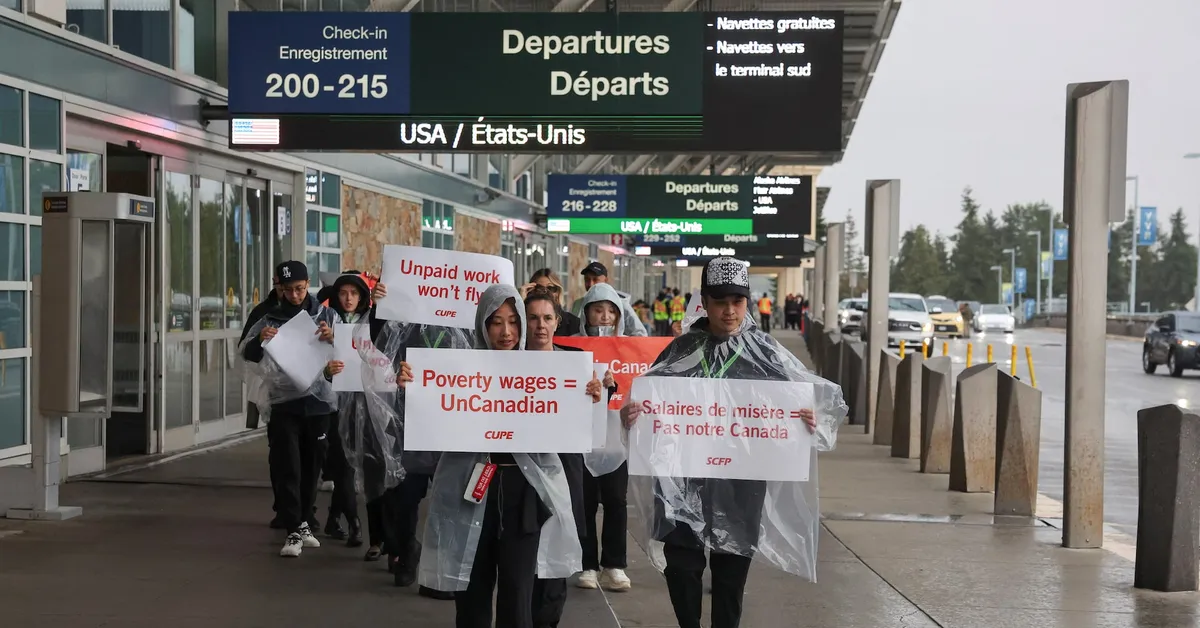
MONTREAL/TORONTO, Aug 16 (Reuters) - In a significant move to resolve the ongoing strike by Air Canada cabin crew, the Canadian government has requested the Canada Industrial Relations Board to impose binding arbitration. This action, which comes at the request of the nation’s largest airline, is opposed by the striking flight attendants, who have been advocating for better compensation and working conditions.
During a press conference, Jobs Minister Patty Hajdu announced that she had formally asked the labor board to mandate binding arbitration and to put an immediate end to the strike. She explained that if the board approves the government's request—which is typically granted—Air Canada could take approximately four to five days to restore its full operations.
Air Canada has proposed a 38% increase in total compensation for flight attendants over the span of four years, including a 25% raise in the first year. However, the Canadian Union of Public Employees (CUPE) has deemed this offer insufficient. Currently, flight attendants are compensated only for the time their aircraft is in transit, and the union is demanding pay for the time spent on the ground between flights and while assisting passengers during boarding.
Wesley Lesosky, president of the Air Canada component of CUPE, stated in a press conference earlier that there were no scheduled bargaining sessions between the two parties, despite months of sporadic negotiations. The union has mobilized its members, with hundreds of cabin crew members demonstrating outside Toronto Pearson International Airport, the busiest airport in Canada. Union leaders have urged members to gather at major airports across the country, including those in Montreal, Calgary, and Vancouver.
Air Canada, which is based in Montreal, confirmed that the strike has led to the suspension of numerous flights, including those operated by its low-cost subsidiary, Air Canada Rouge. The airline estimates that approximately 130,000 customers per day will be impacted by the flight cancellations. Notably, flights operated by Air Canada's regional affiliates, Air Canada Jazz and PAL Airlines, will continue to operate as scheduled.
The union claims that while Air Canada has offered compensation for certain unpaid duties at 50% of the hourly rate, it is still striving for wage parity with Air Transat, a Canadian leisure carrier. Last year, Air Transat's flight attendants ratified a contract that secured total compounded increases of 30% over five years, positioning them as the highest-paid flight attendants in the Canadian aviation industry.
In conclusion, the situation remains fluid as both Air Canada and the CUPE prepare for the next steps in this labor dispute. The outcome of the government’s request for binding arbitration may play a crucial role in shaping the future of labor relations within the Canadian airline industry.